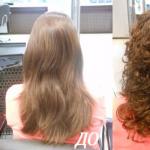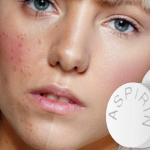Good washing powders: which one to choose? Which washing powder is better? Tide Color is the best value for money.
Which washing powder is better?



The variety of washing powders on the shelves can confuse anyone. They vary in cost, type of fabric, presence of phosphates, and organic components. Even one manufacturer usually offers at least 5 - 6 varieties of powder. Let's figure out together which powder washes best and what kind of washing it is suitable for.
Automatic washing powder
For washing machines Specialized or universal washing powder is suitable. Both types have low-foaming properties, which is mandatory for automatic washing. If you are using a machine powder intended for hand wash, then at best the laundry will not be washed well, and at worst, excessive foam will damage the equipment.
Therefore, for washing machines you need to purchase those powders that have special markings. Such powders do not contain foaming agents. On the contrary, they contain antifoaming components.
Powders from the brands Persil, Froshe, Ariel, Tide, Luxus, and Reflect have proven themselves very well. Which washing powder is best for you, you can only decide for yourself. Pay attention to the phosphate content: their absence is a plus 1 advantage to the purchase.
Hand wash powder
As you already know, unlike machine wash powder, hand wash powder has foaming agents added. Washing by hand with washing machine powder is very difficult and ineffective. Therefore, pay attention to the markings. The above trade marks also have a line of hand washing powders. And their quality is very decent. In this case, you can use the same brands of powders as for machine washing, but the packaging must indicate “Hand Wash.”
Universal powders
They have a balanced composition that allows you to wash clothes both manually and in a machine. Compared to specialized analogues, such powders are weaker, but more convenient. Although if you need the powder to wash lightly soiled items, this is the best option.
Special washing powders
This group of powders is intended for washing delicate fabrics: wool, silk, delicate linen, black items. All of them contribute to gentle washing of products without loss of shape and color. Cheap brands usually do not have such subtle gradations. All specialized powders are of good quality.
Biopowders
This is a relatively new and promising group powders They specialize in removing stains of protein origin: milk, eggs, blood, etc. These powders contain special enzymes that have the ability to dissolve proteins. These enzymes are not temperature resistant, so the water should be kept at 40-50 degrees. Before using the powder, be sure to read the instructions. After all, even the highest quality powder will be powerless if used incorrectly.
How can one say unambiguously which good powder, which one is bad? Do good washing powders wash, but bad ones don’t? But one powder washes in cold water, another is machine washable, and the third is delicate. What are the criteria?
We can say that a good powder is a universal powder that washes under any conditions. But can one be considered a good powder if it irritates your hands or can cause allergies?
What are good washing powders and what are not so good? What are the determination criteria?

If we conditionally take washing powders that are capable of washing a mechanic’s uniform even in cool water as a criterion for excellence, then it turns out that all the bad powders are those that cannot cope with this task. But these same powders will practically dissolve a delicate thing, which means they are not so good anymore?
In order to evaluate washing powder, you need to specifically consider the conditions in which it will work. The quality of the laundry, the degree of contamination, whether it will be washed by hand or by machine, will the powder cause harm to the person who bought it, causing an allergic reaction?

So, what kind of powders are there?
Universal powders are suitable for washing any fabric; they can be used when washing in a machine and by hand, in cold and hot water. They cope well with general dirt. But if you need to remove stains from organic matter or fruits, universal powders are unlikely to cope with the task.

For this purpose, powders are provided, the packaging of which has the prefix “bio”. In their composition, along with a detergent component that breaks down surface contaminants, special enzymes - activators - are introduced to combat protein and organic contaminants. These enzymes are added to the powder instead of the previously used salt, vinegar and lemon juice. They will help get rid of stains, but they will not make white linen snow-white, so they are suitable for washing only in cool water - otherwise the difficult stain will “cook.”
To wash white laundry, you need a powder with a bleaching effect. They do not necessarily contain chlorine, like powders of the previous generation, but modern agents - so-called bleaching activators - can cause allergies and dry out the skin of the hands. For those who care about their own health, it is best to buy phosphate-free washing powders for washing. They do not damage your hands, wash colored linen and delicate fabrics well, and can be used to process children's clothing. Not suitable for removing complex stains.

This means you will have to have several powders “for each individual case,” which is quite expensive, or go back to the universal one again. . .
The circle is closed, and it’s still unclear which washing powder is better and which is worse.
When determining the best washing powder, you can rely on advertising - the most memorable character is “Mr. Tide”. Advertising does its job - more than 37% of consumers choose Tide.
“Tide” not only contains active surface substances that help remove “difficult” stains, but it also contains special additives that soften the water and prevent scale from forming in the machine. In addition to bleach, Tide also contains luminescent particles - photo-bleaches, which, when drying clothes, that is, in the light, give them additional whiteness. There is a special powder for white linen and for colored linen, although colored powder cannot harm white linen. Among other things, this detergent is certified hypoallergenic.
About 30% of buyers chose Ariel. This powder differs from Tide only in the amount of advertising, and also washes in cold water. The manufacturer declared it as universal, but judging by the fact that one type of powder is intended for colored laundry, another for white, and a third for hand washing, he bent his heart a little.
16% of respondents chose “Losk”, and price was indicated as one of the main factors of choice. “Losk” is indeed cheaper than its competitors and is not much different from them in composition and quality. In addition, the manufacturers honestly wrote that the powder is not universal and it is advisable to wash it in hot water and wear gloves when washing by hand.
“Stork” was isolated from children’s powders. It copes well with “children’s” dirt and clothes washed with this powder do not irritate the delicate children’s skin.
They overdid it with the Myth advertising. The powder itself is no worse than its imported counterparts, and the price is economical. But “3 in 1” worries many. If a detergent easily copes with stains on tiles, then what will delicate laundry turn into under its influence?
You can choose a good powder by testing the product practically. But even here there are pitfalls. Sometimes, when you buy laundry detergent for the first time, and realize that you’re happy with everything, you take the next box. But it doesn’t smell as good and doesn’t wash as well.
You need to keep in mind that you should only buy a good branded powder from reliable retail outlets, and carefully study the packaging labeling. There is a very high probability of being disappointed when you run into a fake. “Ariel” is especially often counterfeited.
Packaging needs to be studied for another reason. It is on it that the conditions are written under which the powder will be most effective when washing, and for which fabrics it is advisable to use it. Do I need to add conditioner when washing, or is it already included in the product? Can the powder be used in an automatic washing machine, or is it intended for hand washing only?
This information is very important. Some powders for white laundry contain chlorine, which can damage colored laundry.
If in automatic car If you use powders for hand washing, you will get a lot of foam, and this can cause damage to the unit. And it will not be the “bad” powder that is to blame, but the consumer who has not read the instructions for use.
We can conclude: a good powder is one that you like and that has met the expectations of the person who bought it. Everyone makes their own choice. He buys whatever powder he likes.
Reading time: 6 min.
The average family washes clothes or linens using washing powder at least twice a week. A good washing powder should not only wash clothes efficiently, not leave marks, not spoil things and, ideally, not cause allergic reactions. Finding the right product can sometimes be difficult, because the abundance of washing powders and their advertising will confuse anyone. That is why we offer you high quality for 2017.
Sarma-Automatic Mountain freshness

Universal washing powder for colored and white laundry. Excellent washes both natural linen and cotton, as well as synthetic fabrics. The enzymes contained in Sarma help remove heavy stains and whiten fabrics. For a whitening effect, optical brighteners and oxygen-containing elements are added to the chlorine powder. Sarma has a strong odor and antibacterial effect.
Flaws:
Eared nanny

How the powder for washing baby clothes has a too aggressive composition with high level phosphates. Moreover, the product is surprisingly safe for sensitive skin kids. The powder perfectly removes stains from juice, watercolor paint, ballpoint pens and markers. “Eared nanny” is a powder with a pleasant, barely noticeable aroma and economical consumption.
Flaws: not suitable for washing silk and wool; quite toxic.
Ariel Color

Washing powder for colored laundry. Although the product is designed to remove stubborn stains, it does not always cope with the most difficult stains. Removes wine and grass stains, has pleasant smell and economical in consumption.
Flaws: often produces excessive foam that can damage the washing machine; not suitable for delicate fabrics; occasionally causes allergic reactions.
Bimax 100 spots

Perfectly removes any heavy stains, even in the form of juice, coffee or grass stains. Compatible with all types of fabrics, except wool and silk. Another advantage of the powder is its cost-effectiveness.
Flaws: poorly soluble in low temperatures; It is not completely washed out in short cycles.
Tide White Clouds

An effective treatment for stubborn coffee, chocolate, red wine, cherry, lipstick and grass stains. The powder has a pleasant smell, does not form scale during washing and is economical to use.
Flaws: not suitable for washing silk and wool; phosphates in the composition.
Ecover Belgium NV industriweg

The product is an ultra-concentrate and can fight stains even in cold water. Due to its hypoallergenic composition, the powder is classified as environmentally friendly detergents. It also contains no dyes, fragrances, pigments or optical brighteners. Thanks to these properties, the powder can be used for washing children's clothes.
Flaws: high price.
Losk 9 Total system

A universal washing powder that guarantees high-quality washing of all types of fabrics, except wool and silk. Contains substances to remove stubborn stains. It has an affordable price and can be used as a detergent.
Flaws: strong smell; high phosphate content; Allergic reactions are possible.
Nordland ECO

An environmentally friendly product that does not contain phosphates and has no pungent odor. Decomposing by 90%, it causes minimal harm environment. The powder is universal because it is suitable for hand and machine wash, white and colored, natural and synthetic fabrics. It contains no phosphates, dyes, or flavors. The powder gently cleanses fabrics and rinses well.
Flaws: high price.
Persil Expert Color automatic

The powder formula contains unique stain remover capsules and color-protective components. The first ones quickly dissolve in water and begin to fight dirt already at the beginning of washing. The latter help keep the color of the fabric bright and saturated. The powder effectively removes fat, chocolate, tomato, ink, jam, juice, etc. from clothes. The product contains emollient components.
Flaws: Not suitable for washing silk and wool.
Top House Super Effect

Universal concentrate for washing white and colored laundry. The product preserves the colors of colored linen, whitens whites and prevents them from mixing. The powder is intended for cotton, linen, synthetic and mixed fabrics. Its enhanced modern enzyme formula copes well with major types of contaminants at minimal temperatures. The powder prevents the formation of scale and is used very economically.
Flaws: not suitable for washing silk and wool; expensive.
From wide range detergents In an ordinary store, one's eyes run wild. Which powder is suitable for your washing machine? How many of them do you need in general? Is one universal powder enough to provide high-quality care for all types of items that you wash?
This article will help you understand the variety of manufacturers, types and functions of the most popular washing powders on the domestic chemical goods market.
Washing powders usually include:
- superficial active substances(substances active during washing);
- binders;
- bleaches;
- excipients (for example, aromatic substances, enzymes).
All detergents can be in powder or liquid form.
Surfactants (surfactants) reduce the surface tension of water and separate dirt from fibers, but their high cleaning activity is reduced in hard water. Modern detergents contain several surfactants and some special soaps.
Binders soften water and eliminate the formation of scale (calcium deposits) on washing machine components and clothing.
Bleaching products remove stains on white, colored, boiled and delicate laundry. They remove stains from red wine, vegetables and fruits using oxidation.
According to the composition and functions of washing powders there are:
- universal washing powders;
- special washing powders;
- aids;
- means for subsequent processing.
Universal washing powders(universal) suitable for washing white and colored laundry made from different types fabrics (except silk and wool) with normal and heavy soiling at any temperature. The bleaching agents contained in these powders begin to act at temperatures between 40 and 60 °C.
Of the inexpensive imported universal powders on the market, the most popular are Ixi and E (Cussons, Australia), Bingo and Gala (Turkey), Dosia and Lanza ("Reckitt Benckiser", Poland), and of the expensive ones - Persil (Henkel), Ariel, Tide.
Many manufacturers produce products accessible to buyers of any income level:
- Procter&Gamble produces Myth, Tide and Ariel powders;
- JSC "Nefis-Cosmetics" - "Sorti economy", Sorti and BiMax;
- OJSC "Era" and Henkel - "Deni", "Losk", Henko, Omo, Persil, etc.
To save money, inexpensive universal powders can be used for both laundry and room cleaning.
Buying just one universal powder really allows you to save money, and the assortment is so large that every buyer will be able to choose a powder that is suitable for the price.
Yes, a universal powder should definitely be in the arsenal of every thrifty housewife! However, is it quite suitable for washing particularly delicate items made of silk or fine wool? Maybe you should pay attention to special detergents?
Special washing powders Designed for washing colored, delicate linen and wool.
Detergents for washing light, thin fabrics are in liquid form and may contain balms and other softening additives.
These products are effective at temperatures of 30 - 40 °C, so they are unlikely to have an effect on severe contamination, and the price is objectively high.
Detergents for black fabrics are presented in an assortment of imported manufacturers (Fewa (Henkel), Wollite, Luxus, Domal, Perwool, Laska (Henkel South), etc.) Most of these products are also produced in liquid form, but there are also powders.
Such products are enriched with ultra-soft ingredients for gentle washing, and also contain a dye fixative to prevent black color from fading. Antibacterial components have been added to some products. A clear advantage of such liquid products is the absence of white stains, which often appear on black linen after washing them with powders, because the powders contain additives that are poorly soluble in water, which settle on the clothes.
Also, special detergents include products for washing curtains. They also come in both liquid and powder form (DALLI Gardinen reinweiss, etc.). These products are designed to soften textile products, after washing they wrinkle less and are easier to iron. They usually contain chemical and optical brighteners.
If desired, you can find detergents for washing jeans in a large supermarket. But the share of this product is minimal, because For washing jeans, a universal powder without chemical bleach or a powder for colored laundry is quite suitable. In addition to these detergents, you can find detergents for washing sportswear on sale.
Whether you need such a newfangled product, the decision is yours.
Separately, we should talk about biopowders. Their main purpose is to remove stains of protein origin (blood, milk, eggs, etc.). Enzymes - dietary supplements (enzymes) that decompose protein - allow you to effectively cope with the task. Biopowders are recommended for soaking and washing at temperatures up to 40 - 50 °C.
Most Popular inexpensive biopowders Russian-made ("Sorti super economy bio", "Biolan", "Aist bio", "Pemos bio", etc.).
Perhaps now, armed with our information, it will be easier for you to choose the optimal set of detergents for perfect care for your clothes.






